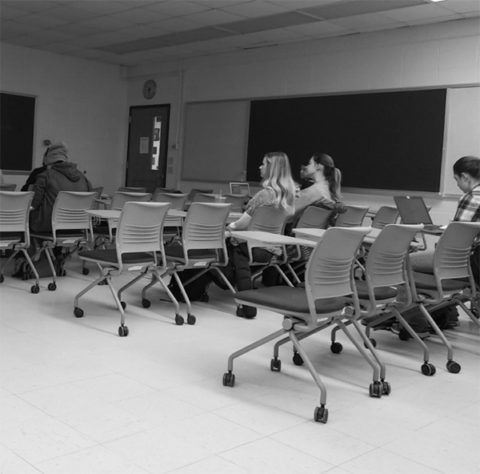Coronavirus leads to class suspensions and alternative classroom methods
March 12, 2020

UWRF has made the decision Wednesday night to cancel all in-person classes until March 30. In an email sent from the chancellor to the campus community, Dean Van Galen wrote that the main priority is safety on campus. There will be no instruction taking place from March 16-30. The email from the chancellor says, “all UWRF instructors will need to move course content to alternate methods of instruction including but not limited to online modes.” All classes that normally meet face-to-face are being suspended from March 30 through at least April 10.
As the World Health Organization declared COVID-19 a pandemic, many universities across the country are taking precautions. On March 10 public health officials announced that a presumptive case of coronavirus has been identified in Pierce County and several more cases throughout the Midwest.
Schools near UWRF have also taken action and have moved all face-to-face classes to alternative learning methods until further notice. UW-Stout, University of Minnesota campuses, and UW-Madison have all decided to close their campuses and suspend classes following spring break.

UWRF campus offices, dining services and on-campus housing will remain open and available during these class suspensions. Although students are allowed to remain living on campus, many students are affected by this change. The email sent to the campus community advised students to leave residence halls if possible. "Students leaving campus are encouraged to go home to their permanent residence and stay home if possible and take with them their essential belongings, academic materials, laptops and medications," according to the email.
Freshman student Riley Peltier has a few concerns about the issue.
“Part of me isn’t very surprised because other schools started cancelling within the past few days so i knew something was going to happen here too,” she said. “I’m kind of upset because I won’t be able to see many of my friends now, they all live hours away. We were also thinking about our meal plans and all the money we paid for things that now we can’t even really use because of the suspensions."
The transition to online classes is also a concern for students.
“I think online classes for some classes are going to be interesting and maybe difficult to do but I mean we have to do it so we can at least try to finish off the semester,” Peltier said.
However, Junior Manon Berger thought online classes may be beneficial.
“I’m grateful that classes were suspended. As soon as spring break is over I think there’s potential for a huge outbreak. I also think online classes will be good to continue with and I also don’t think online classes will affect student’s mental health as much,” she said.
The transition for students, faculty and staff may be difficult. Freshman student Allison Lehner said, “Honestly, I think the coronavirus is causing a lot more fear than it needs to, but it’s also nice to see that the school cares for our health and safety.”
Campus events with gatherings of 50 people are more will be cancelled, athletic events will be following NCAA/WIAC guidance which includes spectator-free events, and non-essential personal travel is discouraged by the university.
According to the chancellor's March 11 email all face-to-face classes are suspended until April 10, at which point the campus community will receive updates from the administration on whether the classes will continue either online or in person.
